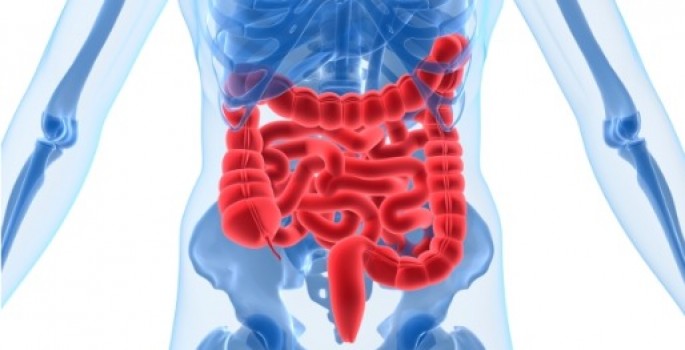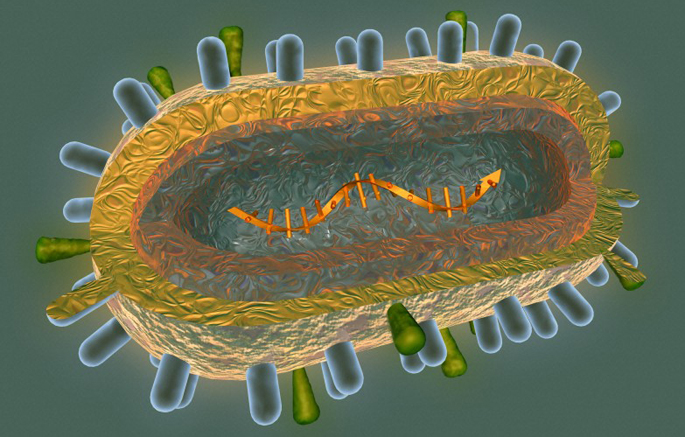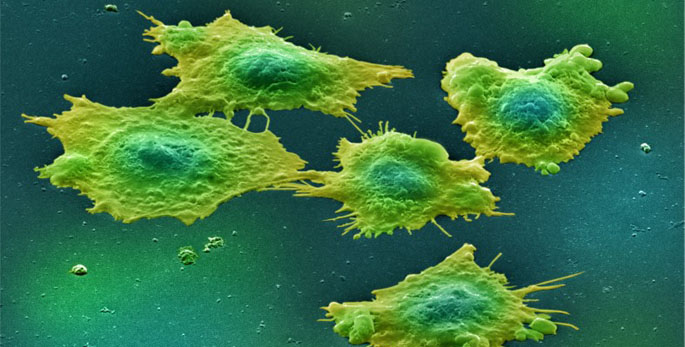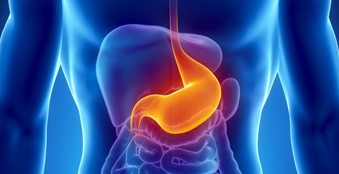Health And Medicine
-

Vanderbilt Clinical Trials Radiology Support Core launched
Vanderbilt’s Department of Radiology and Radiological Sciences has launched the Vanderbilt Clinical Trials Radiology Support Core. Read MoreAug 6, 2015
-

Exercise during teen years linked to lowered risk of cancer death later
Women who exercised during their teen years were less likely to die from cancer and all other causes during middle-age and later in life, according to a new study by investigators at Vanderbilt University Medical Center and the Shanghai Cancer Institute in China. Read MoreAug 4, 2015
-

Study sheds light on human gut’s ‘pacemaker’ cells
The gut has its own built-in pacemakers, populations of specialized cells that control smooth muscle contraction in the stomach, small intestine and colon. Read MoreJul 30, 2015
-

Worldwide Cancer Research lauds Macara’s contributions
Ian Macara, Ph.D., professor and chair of the Department of Cell and Developmental Biology, recently returned from Scotland, where he received this year’s Colin Thomson Memorial Medal for his contributions to cancer research. Read MoreJul 30, 2015
-

Study sheds light on crucial DNA binding protein
Researchers at Vanderbilt University have established the molecular basis for the function of Replication Protein A (RPA), a DNA binding protein that is a crucial “scaffold” for genome replication, response to damage and repair. Read MoreJul 30, 2015
-

Vanderbilt to host conference of leading music cognition researchers
Hundreds of the world’s leading music cognition researchers are coming to Nashville from Saturday, Aug. 1, to Wednesday, Aug. 5, as Vanderbilt plays host to the biennial meeting of the Society for Music Perception and Cognition. Read MoreJul 30, 2015
-

In a zebrafish’s eye
Vanderbilt investigators demonstrate that a certain eye lens protein is evolutionarily conserved between zebrafish and rat, suggesting that zebrafish can be used as a model system to understand eye lens disorders such as cataracts. Read MoreJul 29, 2015
-

Anticancer olive compounds
Compounds found in olives and olive oil have anticancer activity, which may contribute to the cancer preventive properties attributed to the Mediterranean diet. Read MoreJul 27, 2015
-

How to trick a wily virus
Vanderbilt investigators have discovered how human antibodies induced during testing of an experimental “bird flu” vaccine kill the virus. Read MoreJul 24, 2015
-

Targeting bone metastasis
The rigidity of the bone extracellular matrix increases the ability of tumor cells to destroy bone, suggesting new targets for anticancer drug development. Read MoreJul 23, 2015
-

Young professionals bolster cancer research efforts
With a basketball tucked under his arm, 7-year-old Roger Waynick climbed on top of his dad’s black Tahoe SUV with the intention of sailing upward through the air toward the basketball goal. He was poised to make the most epic dunk ever. Read MoreJul 23, 2015
-

Study shows effectiveness of pediatric stroke protocol
A system to ensure that children with stroke-like symptoms receive emergency evaluations results in faster diagnosis and treatment for patients with the condition, a team of physicians and researchers at Monroe Carell Jr. Children’s Hospital at Vanderbilt has shown. Read MoreJul 23, 2015
-

Study explores protein’s role in inflammation-associated cancer
An antioxidant protein may protect against colon cancer that develops in patients with inflammatory bowel disease, suggesting new strategies for reducing colon cancer risk in these patients. Read MoreJul 23, 2015
-

Damon Runyon cancer grant boosts Davila’s research
Marco Davila, M.D., Ph.D., assistant professor of Medicine and of Cancer Biology, has received a grant from the Damon Runyon Cancer Research Foundation that will provide $450,000 over three years to help fund his research on therapies for several types of blood disorders, including various forms of leukemia and non-Hodgkin (also known as non-Hodgkin’s) lymphoma. Read MoreJul 23, 2015
-

Study finds rerouting bile acids may offer simpler alternative to gastric bypass surgery
A new surgical procedure could offer a simpler approach to achieve some of the same weight-loss and metabolic benefits associated with gastric bypass surgery, researchers at VUMC report. Read MoreJul 21, 2015
-

Study reveals how protein helps cells tolerate DNA damage
Vanderbilt and Stanford investigators have discovered how a protein that's part of the DNA replication "machinery" helps cells tolerate DNA damage. Read MoreJul 16, 2015
-

VUMC joins Human Vaccine Project as first scientific hub
Vanderbilt University Medical Center (VUMC), the Human Vaccines Project and the International AIDS Vaccine Initiative (IAVI) announced this week that VUMC has become the project’s first scientific hub. Read MoreJul 16, 2015
-

Grant enhances mental illness drug research efforts
Research at Vanderbilt University Medical Center aimed at developing potential new treatments for major depressive disorder, general anxiety disorder and post-traumatic stress disorder got a big boost this week from The William K. Warren Foundation of Tulsa, Oklahoma. Read MoreJul 16, 2015
-

Biochemistry’s Hodges stays grounded in joy of discovery
Albert Einstein once wrote, “It is the supreme art of the teacher to awaken joy in creative expression and knowledge.” For Emily Hodges, Ph.D., that awakening occurred in a high school science class taught by Trudy Anderson, Ed.D. “She made science exciting,” Hodges said. Read MoreJul 16, 2015
-

Veterans returning from Middle East face higher skin cancer risk
Soldiers who served in the glaring desert sunlight of Iraq and Afghanistan returned home with an increased risk of skin cancer, due not only to the desert climate, but also a lack of sun protection, Vanderbilt dermatologist Jennifer Powers, M.D., reports in a study published recently in the Journal of Investigative Dermatology. Read MoreJul 16, 2015